Crimes of the Future marks David Cronenberg‘s return to the horror genre that established him, but if you look closely at the films he’s made over the last twenty years, you could argue that he never really left. Films like A History of Violence and Eastern Promises, on paper, can read more like thrillers, but just because these films aren’t about mutant hybrids or monsters doesn’t mean they can’t disturb or horrify.
Both of those films co-star Viggo Mortensen, who, under Cronenberg’s direction, has become a versatile and experimental actor, and they seem to complement each other well. But Cronenberg’s films have always been about more than the wet body horror that is in so much of his work. His films are steeped in allegory and meaning, and even his remake of the classic The Fly is full of symbolic and thematic weight.

Cronenberg even made a Canadian film called Crimes of the Future back in 1970, but this new film has little in common with that. The script for this iteration originated in 2003, but Cronenberg set it aside for lack of interest.
However, with current events being as they are, Cronenberg picked up the script again and refined it, and Crimes of the Future is a film that probably would not be possible in a pre-pandemic, climate-changing world. While the film feels topical, it also allows room for exploration and interpretation, and the result is one of the filmmaker’s best films in a roster that is already impressive and resonant.
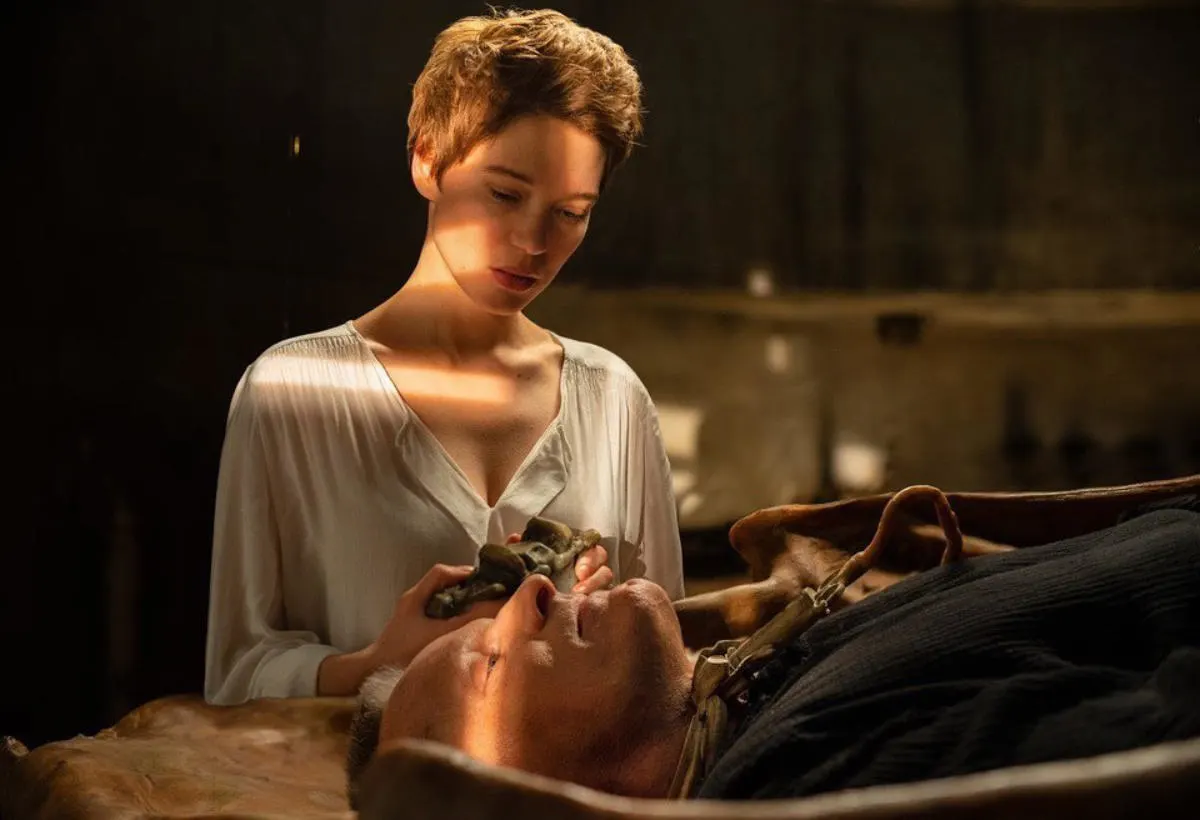
Still, David Cronenberg’s films are not for everyone. The graphic nature of the effects work has always turned off casual viewers, and Cronenberg is not afraid to approach subjects that most audiences would think taboo. Cronenberg isn’t interested in comforting anyone.
He seems genuinely interested but also repelled by the human condition in all its squishy, wet glory, but the gore is never gratuitous, either. Even his son, Brandon Cronenberg, has covered similar terrain in his films so far; it seems the pulsating gland apple does not fall far from the mutant flesh tree.
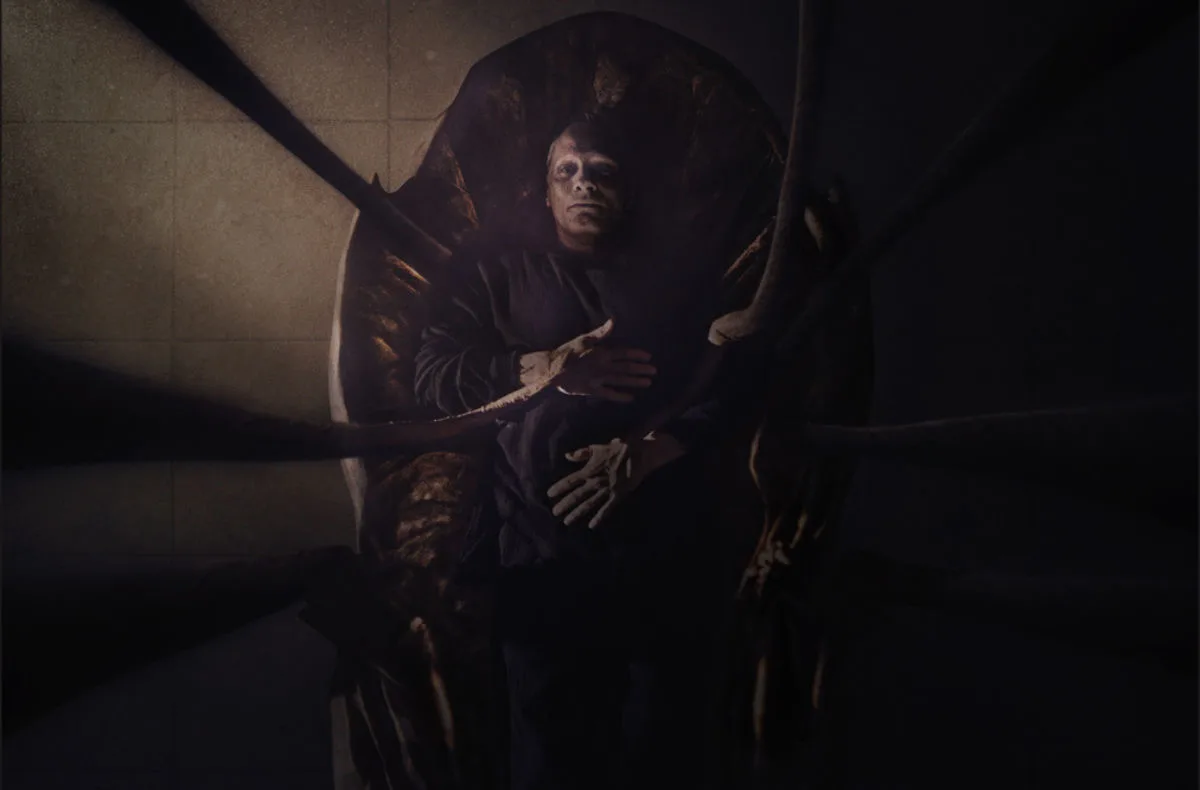
It is an unspecified time in the future, and the world is full of rust, rot, and decay. We rarely see daylight, and the seemingly few humans left are changing, evolving (or devolving, depending on one’s point of view). Our synapses have switched places, the pain has become a pleasure, and elective surgeries are all the rage, or as one character puts it, “Surgeries are the new sex.”
In this world exist Saul Tenser (Viggo Mortensen) and Caprice (Léa Seydoux), who are performance artists and partners. Tenser spends his days either lying on a biomechanical bed or trying to eat organic food with the assistance of a skeletal digestion chair. Tenser also seems to be growing new organs daily, which Caprice cuts out of him using an autopsy table and puts them on display for the world to see.

This brings Tenser and Caprice to the attention of the National Organ Registry, headed by Wippet (Dom McKellar) and his assistant Timlin (Kristen Stewart), who are intent on studying Tenser and understanding why this is happening, and if Tenser is truly evolving at an accelerated rate. Another government agent, Cope (Welket Bungué), sees Tenser’s mutations as an opportunity for Tenser to get inside with a group of radicals headed by Lang Dotrice (Scott Speedman), who want to upset the status quo.
Cope thinks that the radicals are no longer strictly human and wants to wipe them out, but he needs help. Tenser is conflicted; what, exactly, is happening to humanity? What will we be like on the other side? In a world of waste, disease, and devastation, are we adapting to the ruined world, or are we accelerating our own destruction?
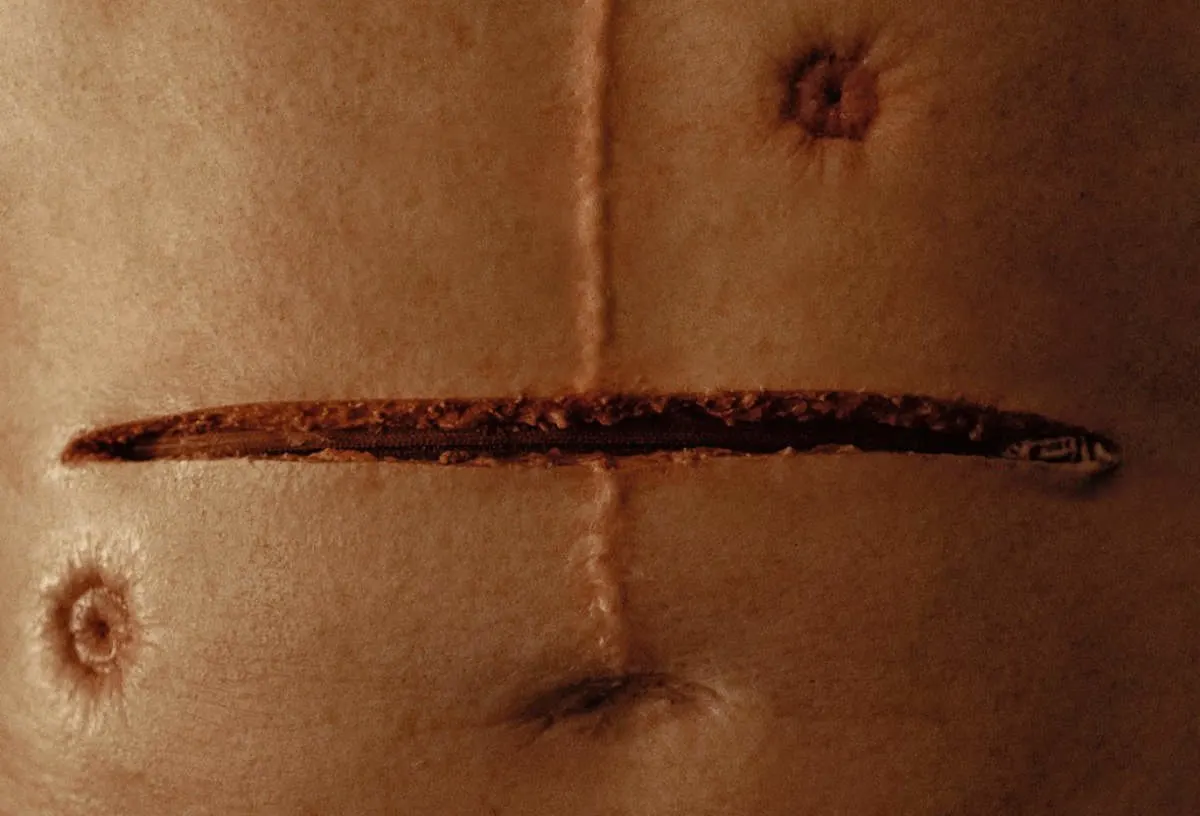
The pandemic and climate change are obviously weighing heavily on David Cronenberg’s mind; although the film never references these things specifically, we can recognize in this future world the growth that has sprouted from the seeds of the present. Crimes of the Future could also be an allegory for our consumption of art and how that has changed in recent years or how Cronenberg, as a filmmaker, has changed over his career. It’s all there for the taking if you want it, and Cronenberg never overplays his hand.
He does not have to – every shocking image has context to it, and even if the audience is unsure of how this world works, they can identify how it came to be. Crimes of the Future is part noir, part absurdist comedy, part commentary on the state of art today, but even more a commentary on the destruction of nature, our responsibility to it, and how our humanity is slowly disappearing throughout.
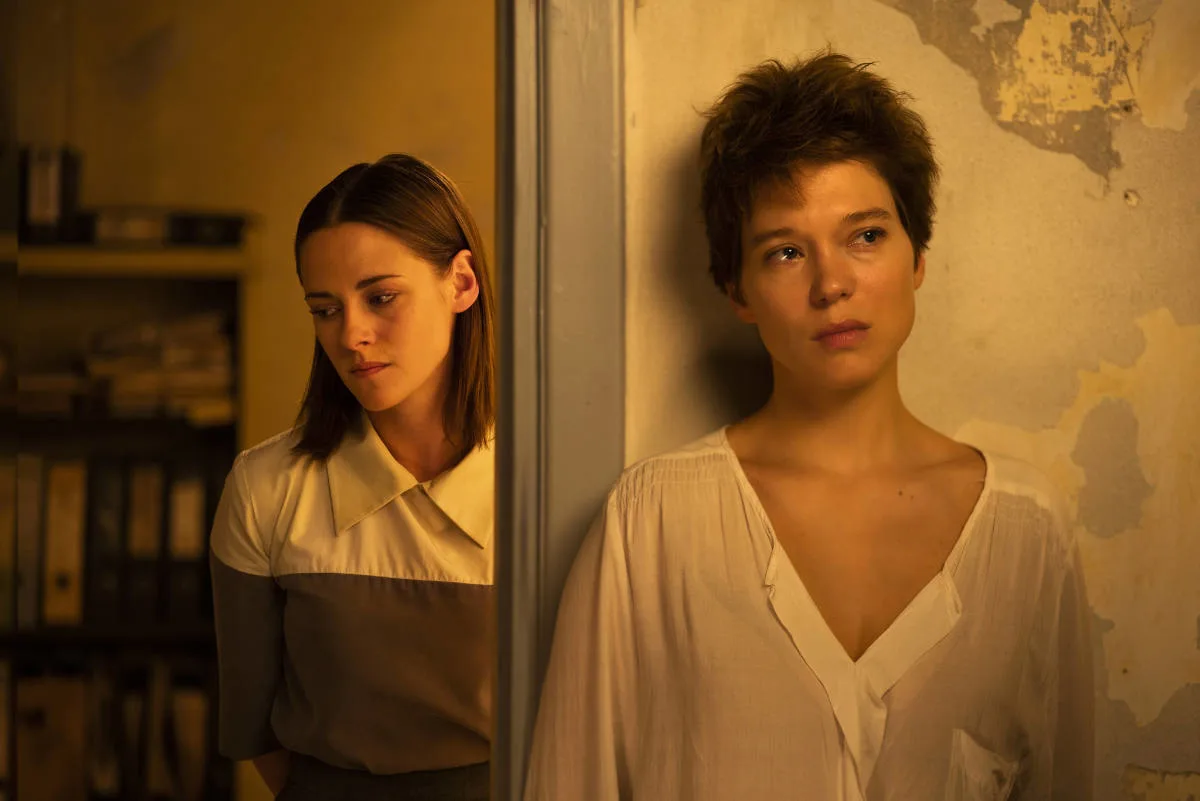
There is a sadness and melancholy to Crimes of the Future that is difficult to shake – it may be too late for the world, Cronenberg suggests, but it depends on how much we are willing to change or how much we can accept. We can fight to save this world or resign ourselves to a world of decay.
Cronenberg knows we will choose decay, that our indifference is our default, but he still holds out hope that there will be something left of us on the other side. Like The Fly, no matter the outcome, we will be transformed.
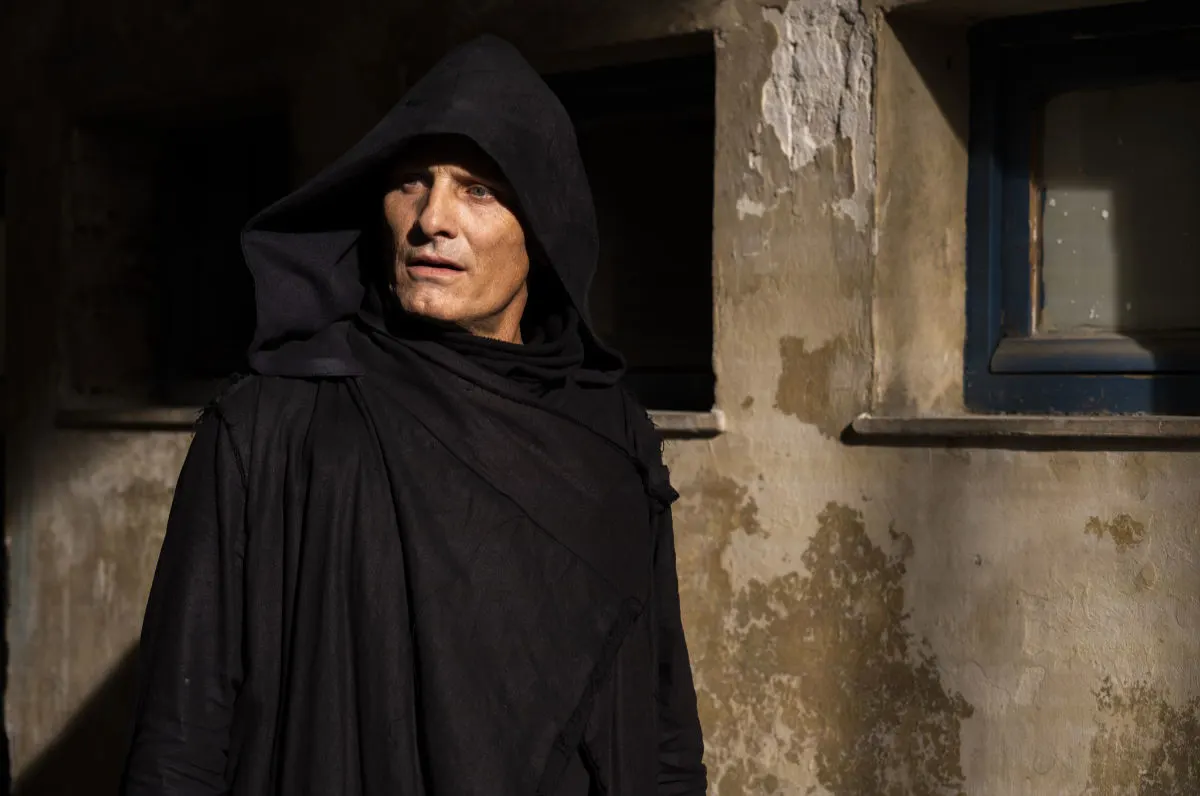
Crimes of the Future is David Cronenberg’s most humanistic film, but whether or not it is a pessimistic view of what lies ahead for us or if Cronenberg foresees any hope for the future is difficult to tell. Perhaps it is not his point of view that matters, but our own. It is wonderful to witness a master of cinema return to the fold but to be honest, he never really left.
Fans of his more “meatier” work may be surprised to find a more contemplative, despondent film, but Cronenberg has always been a filmmaker who believed that to pierce the apathy, one must shock the system and in more ways than one. He never shocks without purpose, and Crimes of the Future is full of purpose if we can be quiet and pay attention.
CRIMES OF THE FUTURE REVIEW SCORE: 8 OUT OF 10
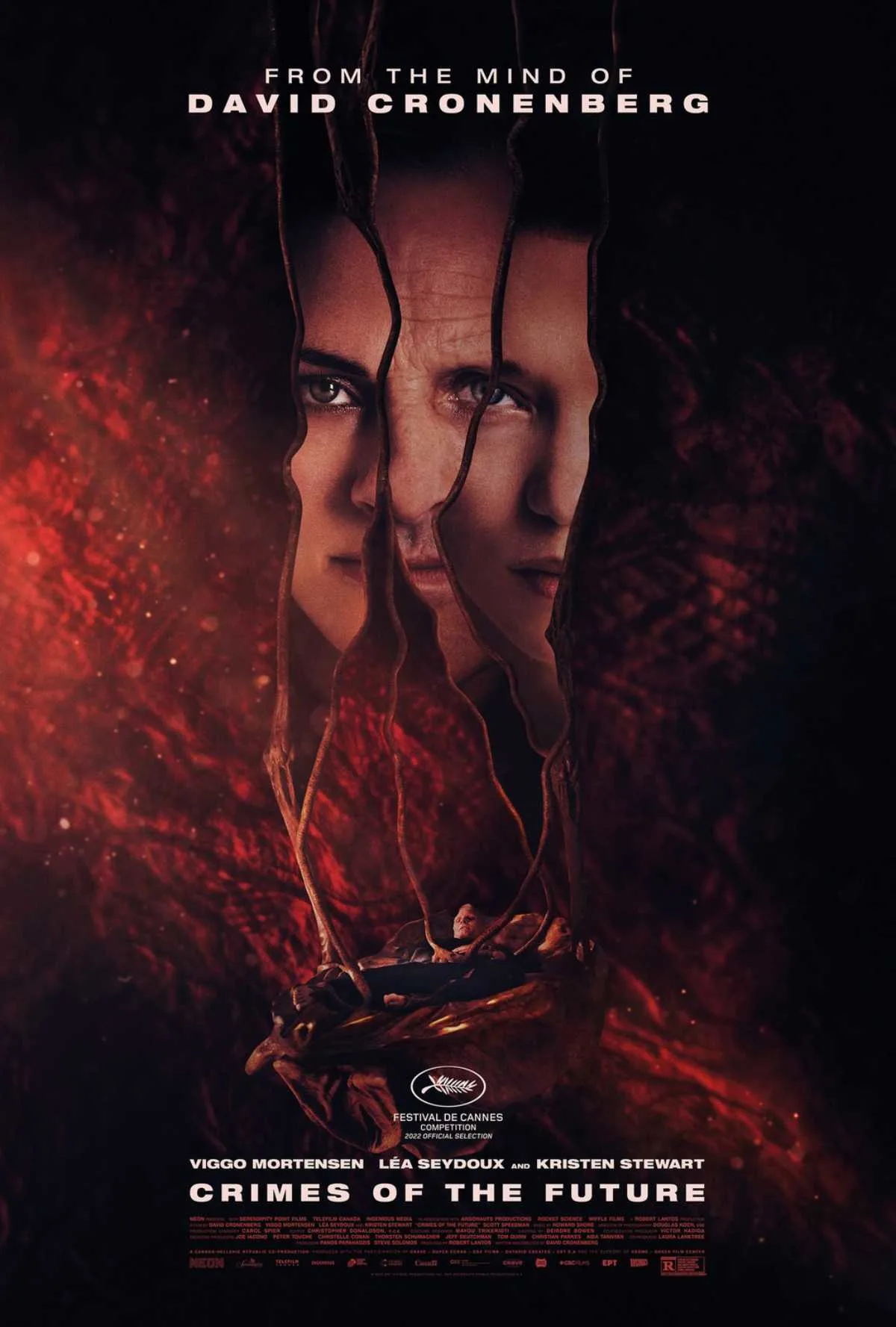

Alan Cerny has been writing about film for more than 20 years for such sites as Ain’t It Cool News, CHUD, Birth Movies Death, and ComingSoon. He has been a member of the Houston Film Critics Society since 2011. STAR WARS biased. Steven Spielberg once called Alan a “very good writer,” and Alan has the signed letter to prove it, so it must be true.